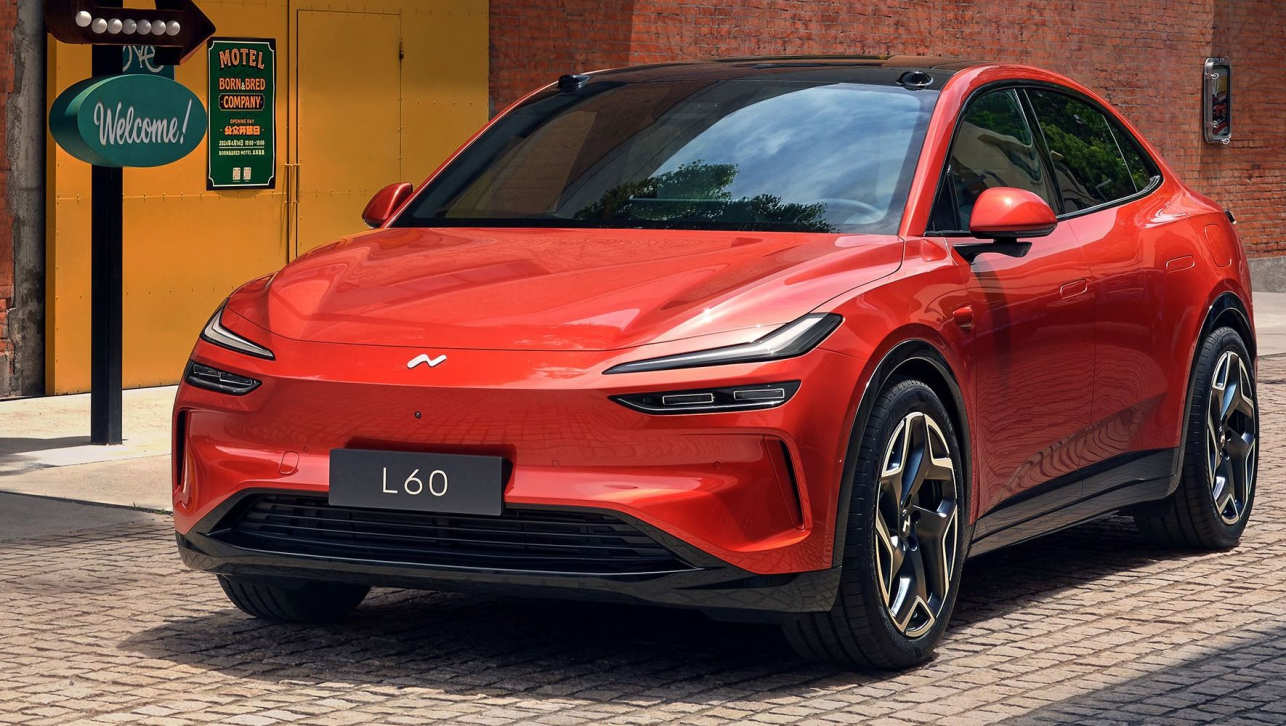Tesla has a target on its back as another Chinese brand launches a cut-price alternative.
This time its emerging carmaker Nio and its affordable sub-brand Onvo taking aim at the electric car king.
Dubbed the L60, the mid-size electric SUV has just gone on sale in China and is priced at the equivalent of about AUD$46,000.
This undercuts the Tesla Model Y, the world’s best-selling EV, by about $12,000.
The L60 brings Nio’s unique battery swap technology that allows owners to swap a depleted battery for a fully charged one at the brand's swap stations.
A battery swap reportedly takes about three minutes, which shatters the time needed to fill up a battery via a DC supercharger.
That’s not the L60’s only advantage.
It’s battery can be topped up via a supercharger and its one of the fastest charging vehicles on the market.
This is due to its 900-volt charging architecture, which trumps the 800-volt set-up used by Hyundai, Kia and Porsche that allow up to 350kW of juice to be pumped into the battery.
The L60 has extremely long legs for an EV.
There are three battery options - 60kWh, 90kWh and 150kWh - that provide a driving range of about 550km, 730km and 1000km respectively.
These figures are calculated via the more generous China Light-Duty Vehicle Test Cycle (CLTC), rather than the widely used Worldwide Harmonised Light Vehicle Test Procedure (WLTP).
It’s extremely aerodynamic, making it as slippery through the air as possible, which helps improve efficiency.

There is no word yet on whether the L60 will be offered outside of China but Nio is one of the few Chinese electric car brands to sell vehicles in other global markets, having secured a toehold in Europe.
Nio has been developing solid state batteries, too, which are thought to be the silver bullet to mass electric car adoption.
Fully solid state batteries use a solid electrolyte instead of a liquid or gel used in conventional units.
Solid state batteries are smaller, faster to charge and more energy dense than current lithium-ion batteries.
Nio recently completed testing of a semi-solid state battery in its ET7 electric sedan.
These semi-solid state cells use a combination of liquid and solid electrolytes to hold energy.
It completed three test runs of more than 1000km on a single charge and the tests were conducted in a range of temperatures, travelled across significant altitude changes and had an average speed of about 80km/h.
Low temperatures, hills and high speeds dramatically decrease an EVs range.





.jpg)
.jpg)

.jpg)
.jpg)






.jpg)

.jpg)


Comments